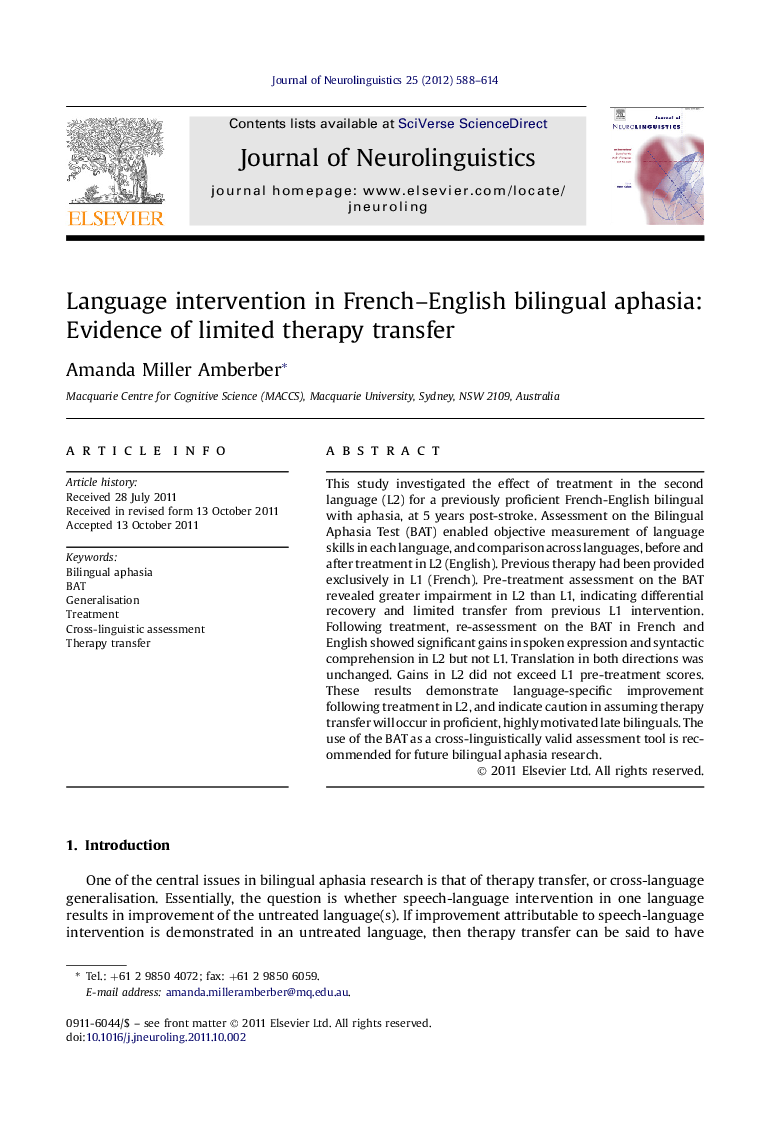| Article ID | Journal | Published Year | Pages | File Type |
|---|---|---|---|---|
| 911846 | Journal of Neurolinguistics | 2012 | 27 Pages |
This study investigated the effect of treatment in the second language (L2) for a previously proficient French-English bilingual with aphasia, at 5 years post-stroke. Assessment on the Bilingual Aphasia Test (BAT) enabled objective measurement of language skills in each language, and comparison across languages, before and after treatment in L2 (English). Previous therapy had been provided exclusively in L1 (French). Pre-treatment assessment on the BAT revealed greater impairment in L2 than L1, indicating differential recovery and limited transfer from previous L1 intervention. Following treatment, re-assessment on the BAT in French and English showed significant gains in spoken expression and syntactic comprehension in L2 but not L1. Translation in both directions was unchanged. Gains in L2 did not exceed L1 pre-treatment scores. These results demonstrate language-specific improvement following treatment in L2, and indicate caution in assuming therapy transfer will occur in proficient, highly motivated late bilinguals. The use of the BAT as a cross-linguistically valid assessment tool is recommended for future bilingual aphasia research.
► Treatment study of a proficient French–English bilingual with chronic aphasia. ► Improvement in the second language (L2) following treatment in L2 (English). ► No evidence of improvement in the first language (French). ► Efficacy of the Bilingual Aphasia Test (BAT) to measure improvement demonstrated. ► Results indicate that speech-language treatment may be required in each language.
